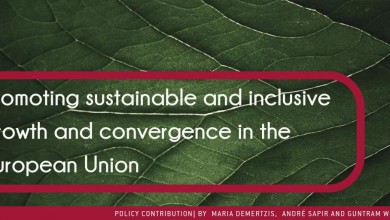This Blueprint offers an in-depth analysis of inequalities of income and wealth in the EU, as well as their causes and consequences. How evenly are the benefits of growth distributed in our economies, and what does this mean for fairness and social mobility? How could and should policymakers react? It is published by Bruegel. The pdf can be found here. Financial support by Mastercard center for inclusive growth is gratefully acknowledged.
Contrary to many perceptions, income inequality in the EU has fallen over the past two decades. In the EU as a whole, and in most EU members, absolute poverty is rare and income inequality is low. Strong welfare states have offered protection against inequality.
However, income inequality has increased, measured on a country-by-country basis. Unemployment remains high in a number of member states, while the intergenerational divide between the young and the old has widened. Social mobility is weak, in particular in the more unequal economies of southern Europe, limiting opportunities for the children of poor and disadvantaged families.
High inequality can fuel political disenchantment, and may have played a part in the Brexit vote. High inequality and poverty can boost protest votes in referenda and elections.
Technological change and robotisation will not necessarily increase inequality. However, many routine physical and cognitive tasks will be automated, and workers will need creative and social skills.
The link between education and income is weaker in Europe than the USA. In most EU countries, the “skills premium” associated with higher levels of education is falling. However, there is a strong link between family wealth and children’s educational attainment – especially in more unequal countries.
It is national governments, not the EU, who can plausibly act. Inclusive growth needs to be at the top of the policy agenda, but relevant powers in welfare and education are largely at national level.

